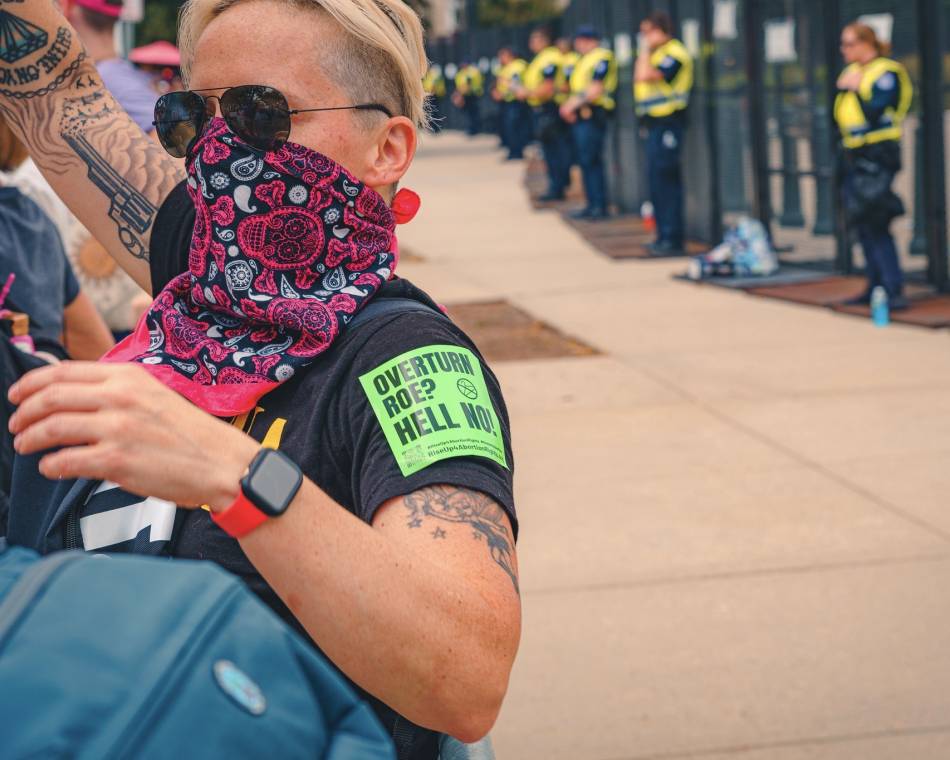WASHINGTON (AN) — Global organizations and leaders in health and human rights broadly condemned the U.S. Supreme Court's overturning of Roe v. Wade and other precedents protecting access to abortion as a serious danger to the lives of millions of women and girls.
The justices' 6-3 decision on Friday upheld a restrictive Mississippi law banning all abortions after 15 weeks of pregnancy. Five justices also voted to overturn Roe, disregarding almost 50 years of legal precedent guaranteeing constitutional protections for abortion. It culminated decades of anti-abortion efforts aided by former President Donald Trump's three court appointees.
In doing so, the court radically departed both from legal precedent and the prevailing views of Americans who, according to opinion polls, mostly favored keeping Roe v. Wade.
Within hours of the ruling, the World Health Organization weighed in on the dangers of government taking away the autonomy of a deeply intimate decision in a woman's life. "Safe abortion care is essential to protect the health of women and girls everywhere," it said. "Removing access to abortion care will put more women and girls at risk of illegal abortions and the consequent safety issues that would bring."
WHO calls abortion a common health intervention that's safe when done by someone with the requisite skills using a recommended method appropriate to the pregnancy duration. It notes three-fifths of the 73 million a year unintended pregnancies worldwide end in an induced abortion, and 45% of all abortions — nearly all in developing countries — are unsafe.
"Unsafe abortion is a leading — but preventable — cause of maternal deaths and morbidities. It can lead to physical and mental health complications and social and financial burdens for women, communities and health systems," the United Nations health agency says. "Lack of access to safe, timely, affordable and respectful abortion care is a critical public health and human rights issue."
The court's three liberal justices, Stephen Breyer, Elena Kagan and Sonia Sotomayor, wrote in their dissenting opinion that the United States "will become international outliers after today." Minority women with limited health care access will likely be the most impacted.
U.N. spokesperson Stéphane Dujarric said the world body's position is that sexual and reproductive health and rights represent "the foundation of a life of choice, empowerment and equality for the world's women and girls."
The U.N. Population Fund, which advocates for sexual and reproductive health rights, said the ruling will only endanger people's lives. It also referenced its report saying nearly half of all pregnancies worldwide are unintended and more than 60% of those pregnancies may end in abortion.
"Whether abortion is legal or not, it happens all too often. Data show that restricting access to abortion does not prevent people from seeking abortion, it simply makes it more deadly," the agency said.
The high number of unsafe abortions worldwide makes this "a leading cause of maternal death," it said, and "more unsafe abortions will occur around the world if access to abortion becomes more restricted. Decisions reversing progress gained have a wider impact on the rights and choices of women and adolescents everywhere."
Protesters gathering outside the U.S. Supreme Court and around the world in cities such as London and Paris where leaders and abortion rights activists said they were appalled at the ruling.
Anti-abortion activists and politicians, however, welcomed the court's decision to make the United States one of only four countries — the other three are El Salvador, Nicaragua and Poland — that have curtailed abortion rights since 1994. By contrast, more than 50 countries have eased abortion laws, according to the Center for Reproductive Rights, a global advocacy group.
“Abortion is a fundamental right for all women. It must be protected,” French President Emmanuel Macron said. “I express my solidarity with the women whose freedoms are today challenged by the Supreme Court of the United States of America.”
Canada's Prime Minister Justin Trudeau expressed sympathy for the many women affected by the decision.
"The news coming out of the United States is horrific. My heart goes out to the millions of American women who are now set to lose their legal right to an abortion," he said. "No government, politician, or man should tell a woman what she can and cannot do with her body."
Scottish leader Nicola Sturgeon called it "one of the darkest days for women’s rights in my lifetime."
This story has updated with additional details.









